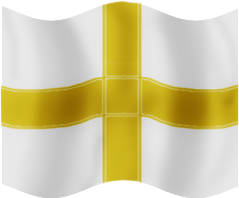Bara'Khur/Old Bara'Khur
Error: No contents found at URL https://battlemaster.org/data/realm/4/45.

Royal Standard of Bara'Khur | |
| Overview | |
| Nobles | |
| Council | |
| Regions | |
| UnknownSome use of "" in your query was not closed by a matching "". | |
[[Category:]][[Category:]]
Contents
History
The spiritual Descendant of Khthon, Bara'Khur was founded by Jenny Hashimashidas, once Hero and General of Khthon. Lady Jenny was appointed Duchess of Dyomoque while in Avalon and seceded from the realm after the deplorable acts of Nezumi, then Chancellor of Avalon. From the moment of its creation, the realm has always been a monarchy, with only Heroes and Cavaliers being eligible to become ruler.
The Long Month
One of the most turbulent periods of Bara'Khurian history came many moons after her founding, between late May and the end of June 2009 following months of increasing inner turmoil between the leading nobles of the realm. In particular these included tensions about realm direction as well as increasing difficulties in keeping the realm fed despite a healthy food surplus each harvest. Events came to a head with the sudden announcement by Queen Jenny of Bara'Khur's intent to involve herself in a conflict between Riombara and Enweil.
Deciding that the criticisms of his actions as Ficuciary of Bara'Khur were too much to bear, as well as being vehemently opposed to Bara'Khurian policy in the new war and exiled as a result of his acts of sabotage, Duke Quinn changed the allegiance of Dyomoque, the capital of Bara'Khur, to Hetland thus sparking a great crisis for the realm. Over half the realms possessions were taken over to Hetland as well as many eminent Bara'Khurian nobles sworn to the Duchy of Dyomoque. Within a day however, all but Dyomoque had been returned to Bara'Khur, with the lords of Dyomoque standing behind their Queen rather than the selfish actions of their Duke.
Despite the quick return of all but Dyomoque to Bara'Khur, too much damage had been done. Duke Quinn gained the support of Hetland and a war began which pitted Bara'Khur against Heen and Hetland. Shortly afterwards Queen Jenny found she could not continue as monarch and King Attila ascended the throne at the head of the pragmatic, reformist faction. Seeking to limit the damage and focus on resolving Bara'Khur's internal problems, King Attila made an amiable peace with Hetland.
In the following days and weeks, wide ranging reforms were begun in Bara'Khur and a new era of openness and inclusiveness was begun as King Attila sought to reunite Bara'Khur. Some nobles would not be convinced however, and after having failed both to prevent the rise of King Attila to the throne as well as win his Fiduciary seat upon his vacating it, they decided to lead a popular revolt to try and take power in Bara'Khur.
At the time of writing, the rebellion looks to have been all but strangled at birth and it rounds off one of the most challenging periods in Bara'Khur's history.
Culture
The Nobility of Bara'Khur comes from a wide range of different areas, though with the vast majority coming from three separate places. Valentia, Heen and Khthon. This has led to an interesting mix of beliefs mannerisms in Bara'khurian high society. Most notably in the significant spread of the Valentic Order, the hardy outspokenness of former desert dwellers and the high numbers of Heroes within the realm.
Religion
The most dominant faith in Bara'Khur is that of the Valentic Order, with temples dotted all over the kingdom. For a long time, there existed several small holdings of less widespread faiths. There were two ruined temples of the Blood Cult in the south, whilst Estahsism was gaining an increasing stranglehold over Bara'Khur's northern, mountainous territories. In addition Heroisticism had been founded Haffemet, however the events of the Long Month saw the collapse of at least two of those faiths and the decline of religious plurality in the kingdom.